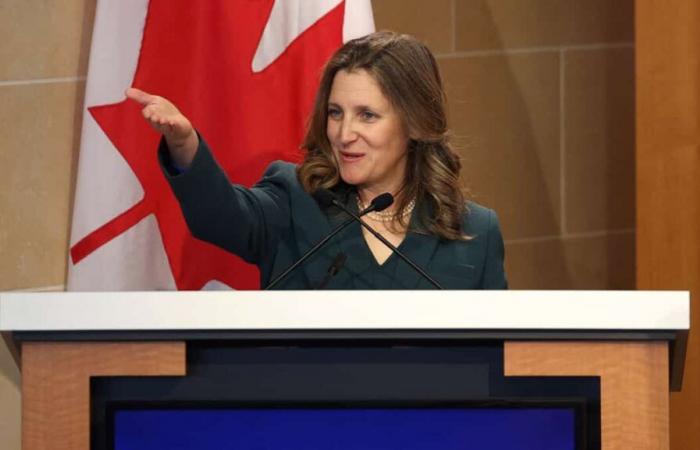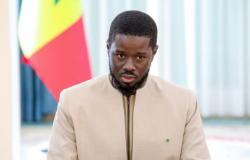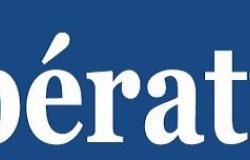Deputy Prime Minister of Canada Chrystia Freeland announced her resignation from Justin Trudeau’s cabinet on Monday. Here are his main achievements over the past few years.
• Also read: Will there be an economic update in Ottawa?
• Also read: Shattering resignation of Chrystia Freeland: “I have never seen anything like this,” says Emmanuelle Latraverse
• Also read: In “disagreement” with Justin Trudeau, Minister Chrystia Freeland resigns
1. The economy after the pandemic
Ms. Freeland has served as Minister of Finance since August 2020, following the abrupt departure of Bill Morneau.
During the pandemic, the Deputy Prime Minister supported the strong recovery of the Canadian economy from the COVID-19 recession.
Faced with a reduction in emergency spending linked to the pandemic, an alarming unemployment rate and the end of the Canadian Emergency Response Benefit (CERB), Ms. Freeland had to navigate through economic uncertainty in Canada.
She also led the establishment of Canada’s first national affordable early learning and child care system.
2. New NAFTA
As Minister of Foreign Affairs between 2017 and 2019, Freeland led and concluded the renegotiation of NAFTA, to ensure “free and fair” trade in North America.
The entry into force of the new North American Free Trade Agreement (NAFTA) on July 1, 2020 facilitated trade between the United States, Mexico and Canada.
“The new NAFTA will help protect jobs and ensure the prosperity of workers in the three NAFTA signatory countries,” she wrote in a statement from the Government of Canada in June 2020. “It is good for Canada and for Canadian workers, and it will help North America emerge even stronger from the COVID-19 pandemic.”
The renegotiation of NAFTA, which has united Canada, the United States and Mexico since 1994, was “complex” with the President of the United States Donald Trump, while he judged it to be “disastrous” for his country.
He also mentioned in 2018 his threat to withdraw the United States from the NAFTA treaty if the discussions did not lead to a reasonable agreement.
3. Free trade agreement with the European Union
Chrystia Freeland served as Minister of International Trade from 2015 to 2017.
She was responsible for overseeing the successful negotiations of the Comprehensive Economic and Trade Agreement (CETA) between Canada and the European Union (EU).
The global agreement signed in October 2016, negotiated over seven years, made it possible to eliminate 99% of customs duties between Canada and the European Union.
4. Relations with the Trump administration
Minister Chrystia Freeland chaired the Trudeau government’s “Team Canada” to discuss Canadian-American relations following Trump’s announcement to increase customs tariffs by 25% in November.
The group, made up of 11 ministers who are members of the committee responsible for Canadian-American relations, had the mandate to respond to possible customs tariffs promised by the president-elect of the United States upon taking office in January.
The possible flow of migrants at the border was also part of the discussions with Minister Freeland.
Looking back on his career
When Justin Trudeau was elected in 2015, Chrystia Freeland became Minister of International Trade in the then cabinet of 30 ministers, 15 men and 15 women.
She then served as Minister of Foreign Affairs, Minister of Intergovernmental Affairs, then from 2019 Deputy Prime Minister.
Chrystia Freeland was first elected in 2013 as the Member of Parliament for Toronto Centre. She was then elected and re-elected in the riding of University—Rosedale in 2015, 2019 and 2021.
In 2014, Ms. Freeland, as well as other Conservative, Liberal and New Democrat MPs, were banned from entering Russia in the wake of the Ukrainian crisis.
She began her career in journalism in Ukraine, as an independent correspondent for Financial Times, du Washington Post et de The Economist.
In 2018, the magazine Foreign Policy awarded her the distinction of Diplomat of the Year and she received the Eric M. Warburg Prize from the Atlantic-Brücke for her work in strengthening ties between transatlantic countries.
In 2020, she received the Mark Palmer Award from Freedom House for her years of work promoting democracy and human rights.






